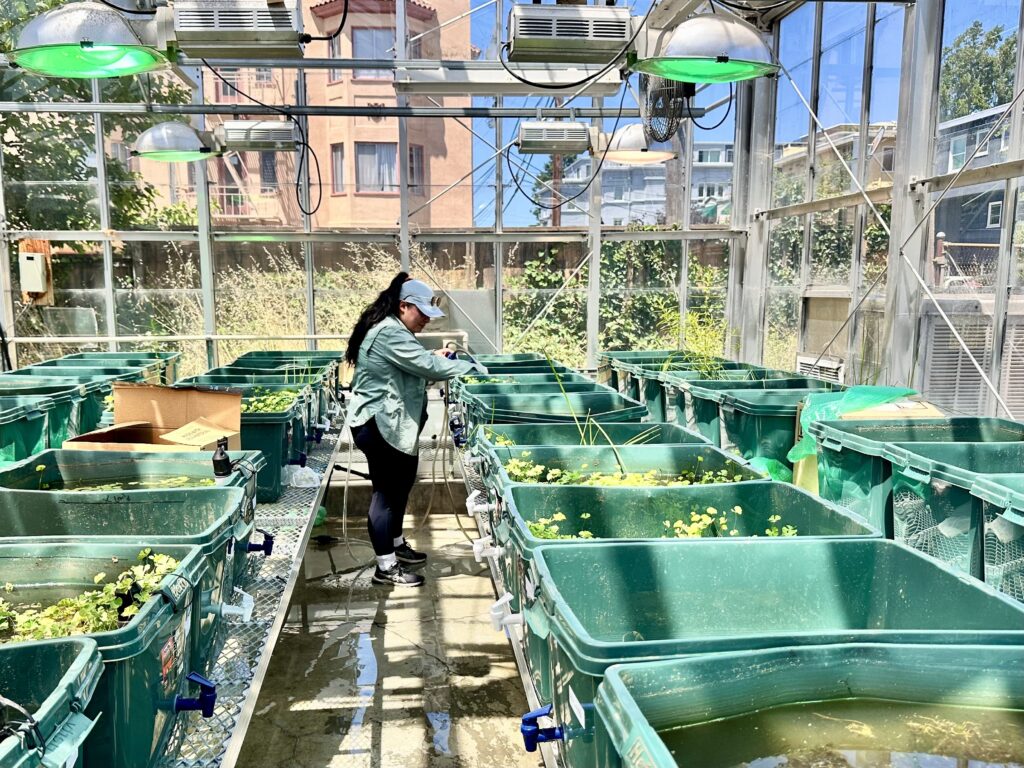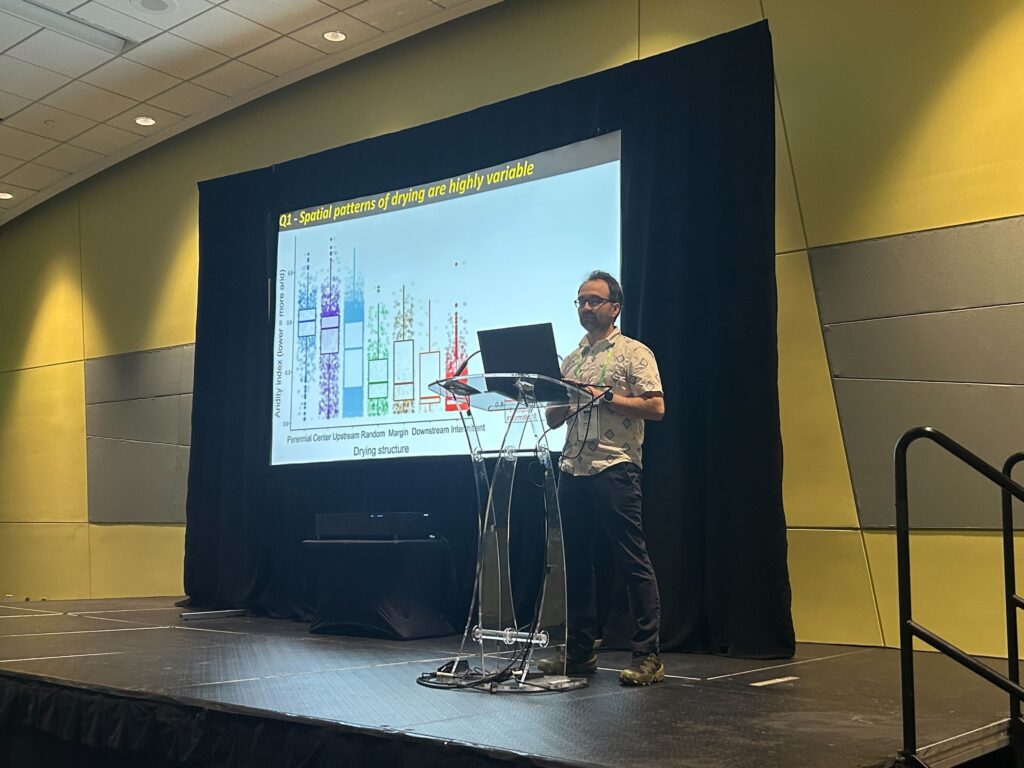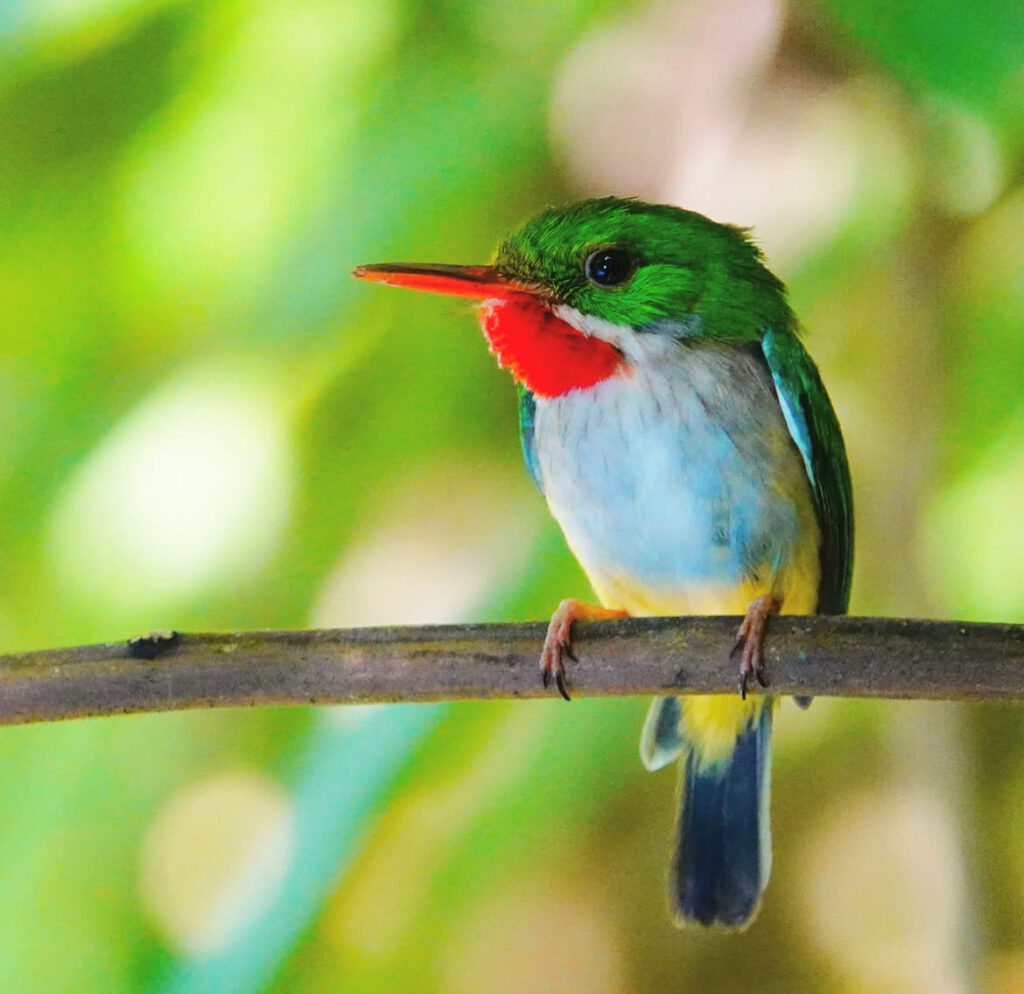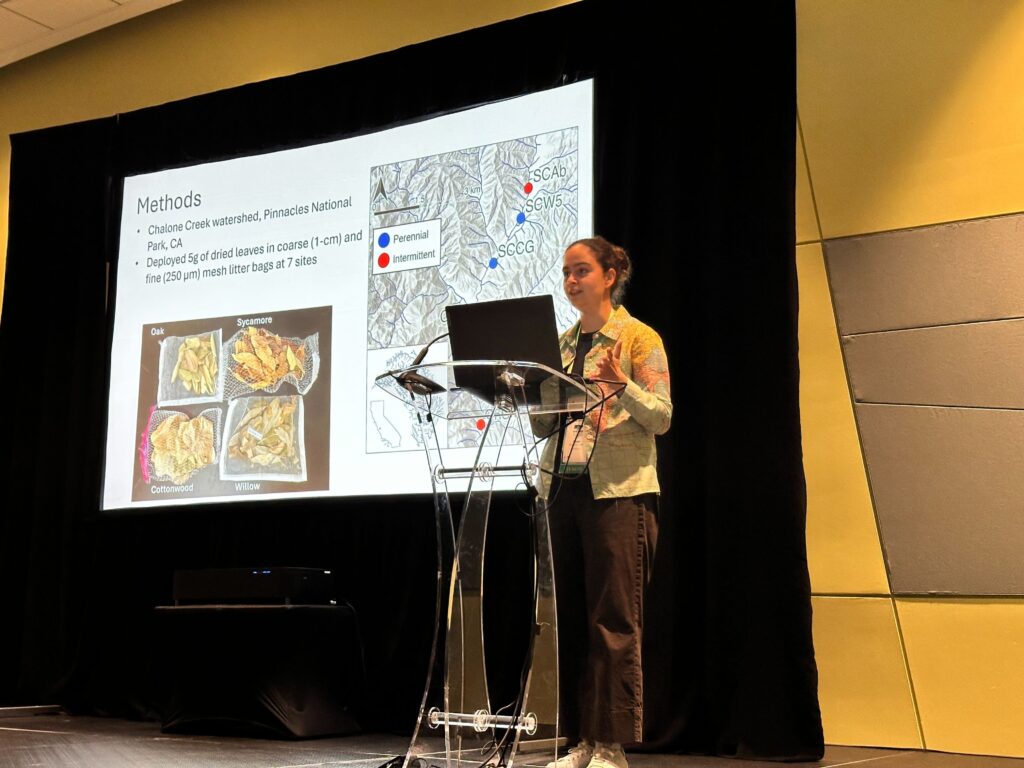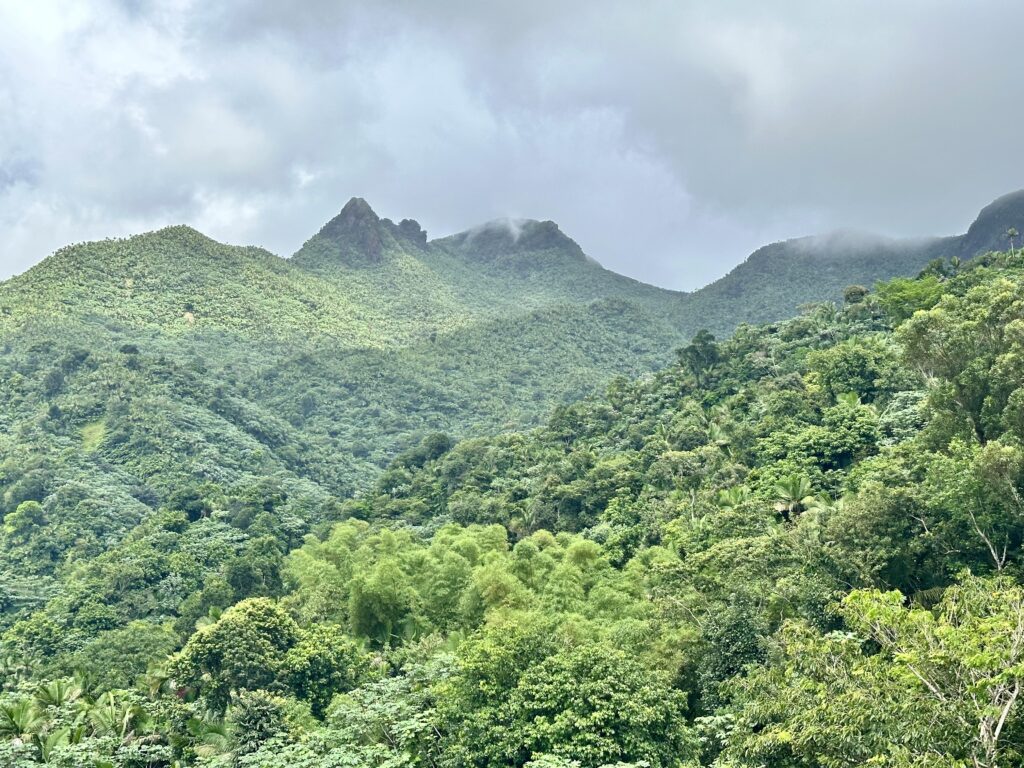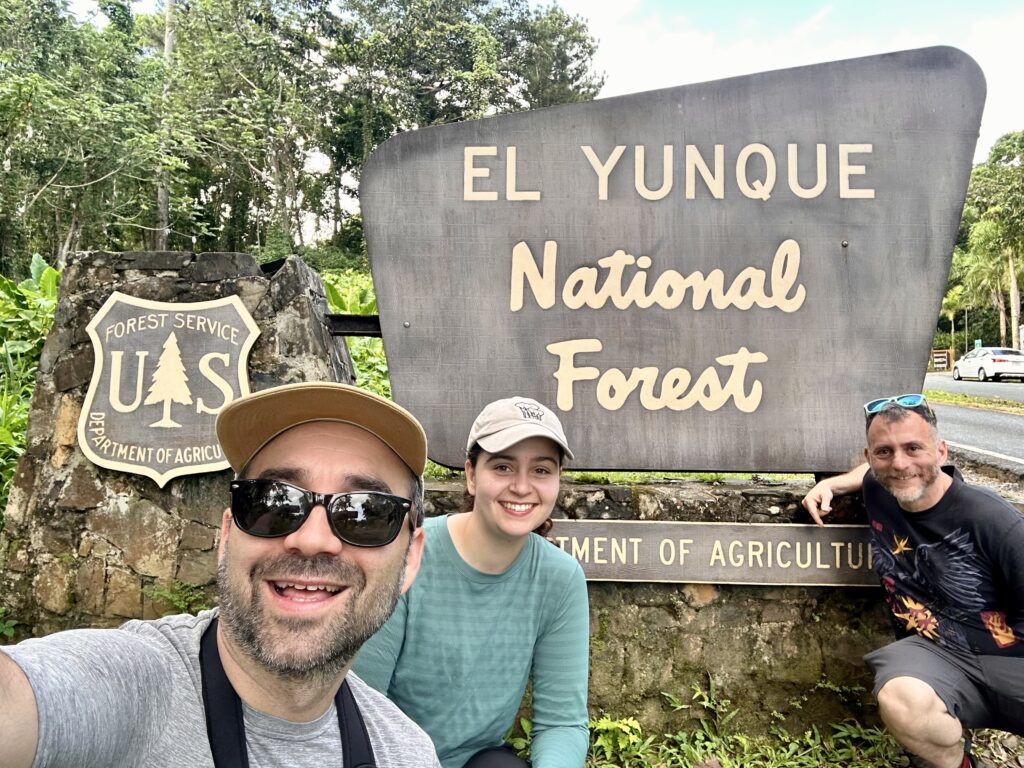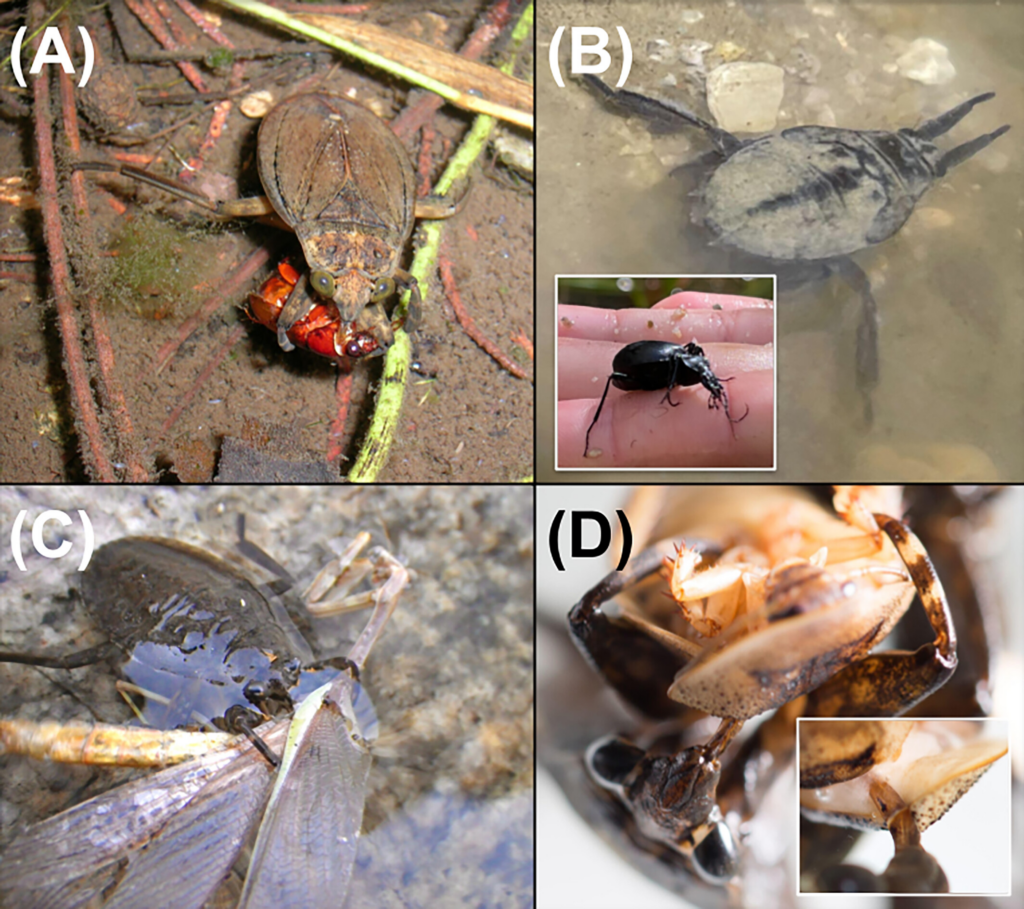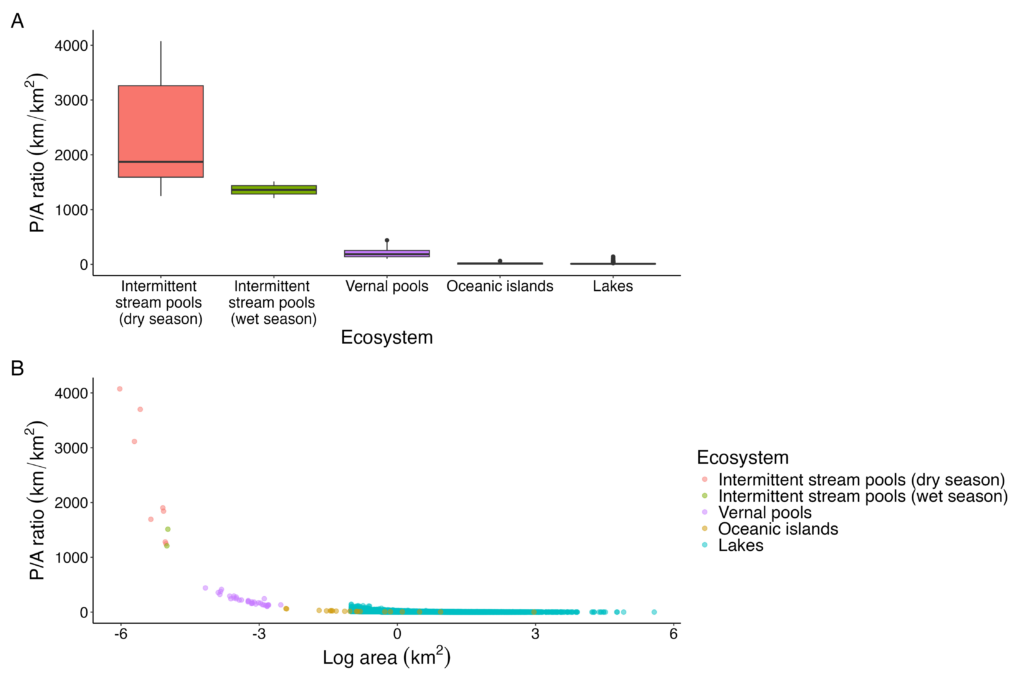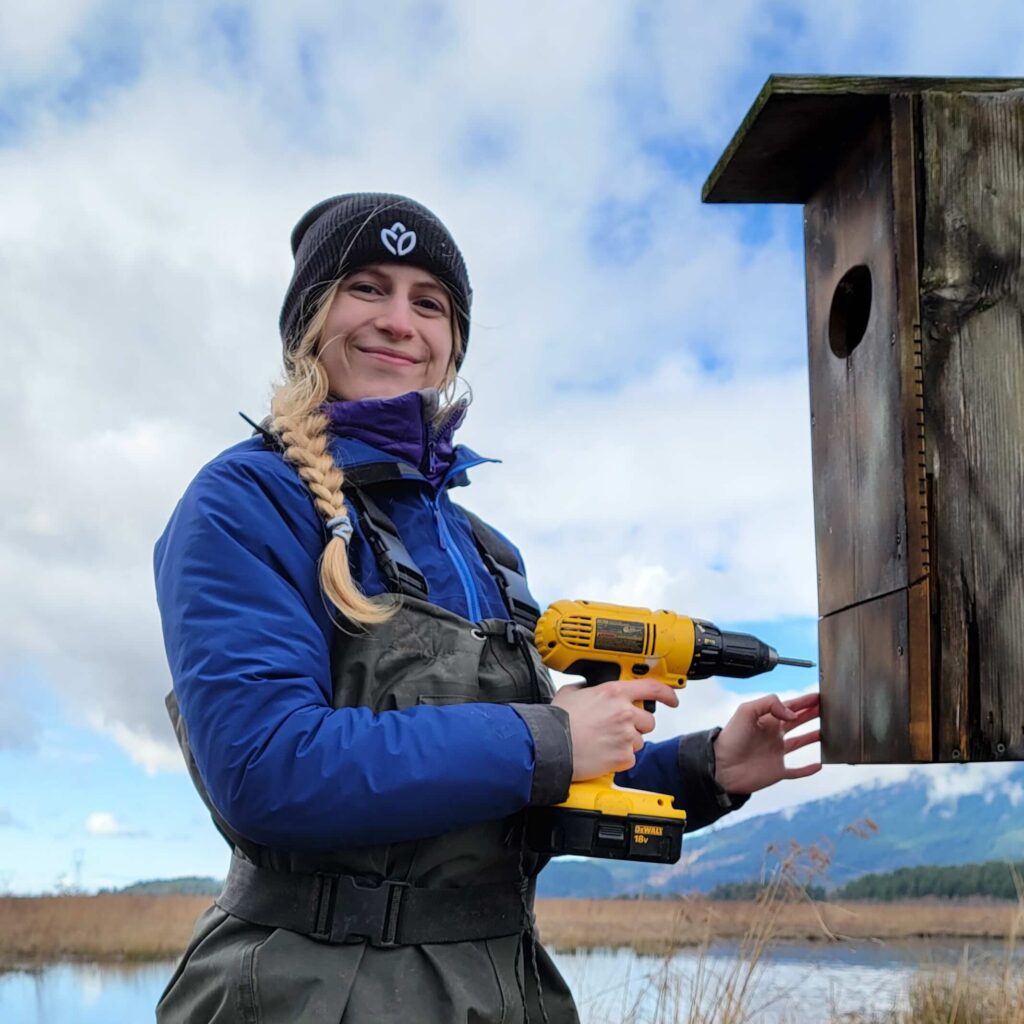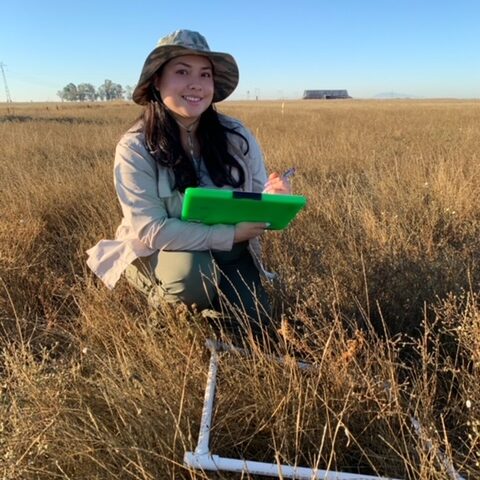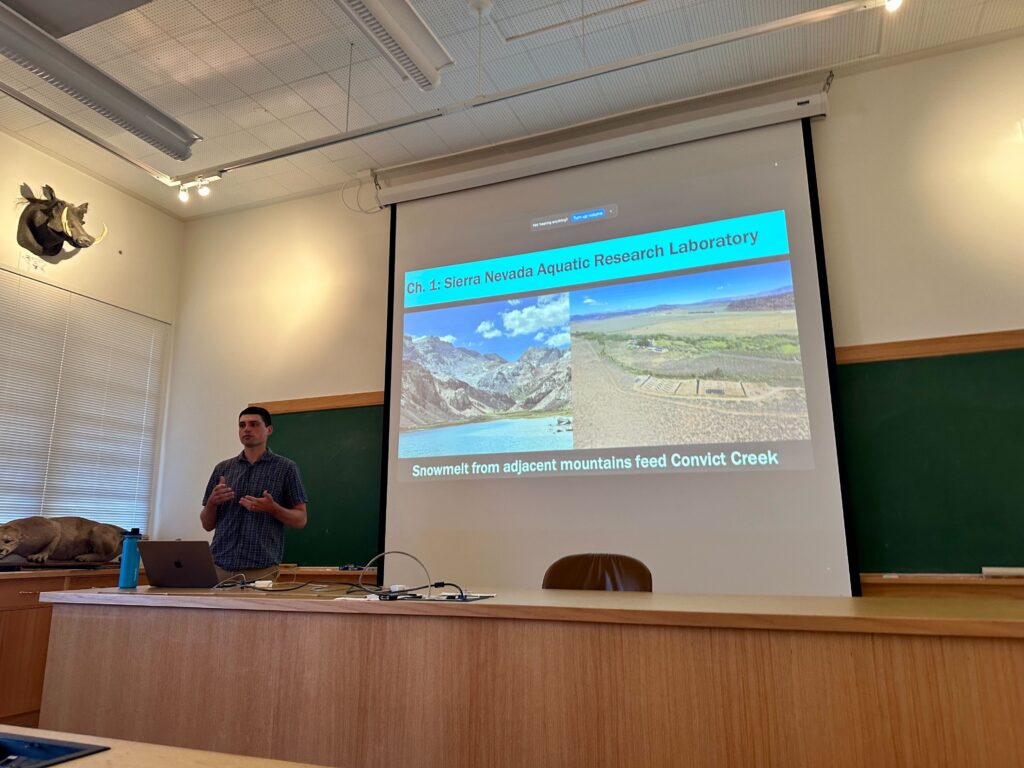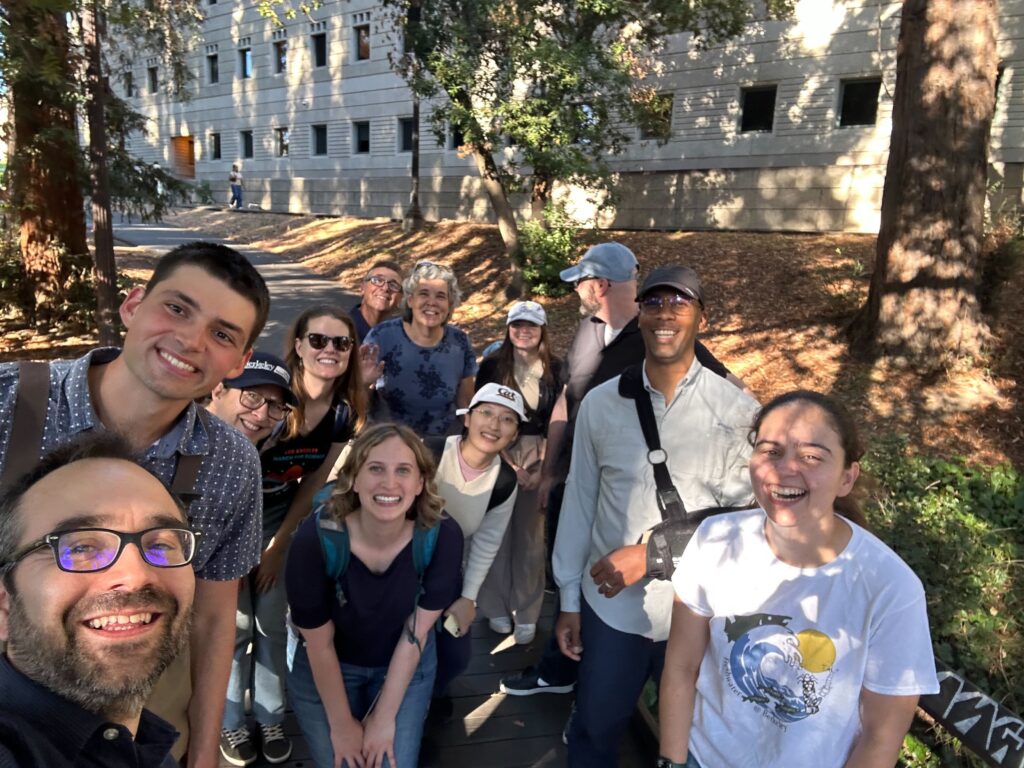Jasmine wrapped up a six-month experiment investigating how changing precipitation patterns affect seedbank viability and community composition in vernal pool ecosystems. Using 60 mesocosms, she tested how precipitation variability affects vernal pool plant and invertebrate seedbanks. Data collection included plant cover and richness, invertebrate diversity, algae, water quality, and more—offering fresh insights into how vernal pool biodiversity may respond to a increasing hydroclimatic variability. Stay tuned to learn how vernal pool plants and animals may fare in the face of climate change!
